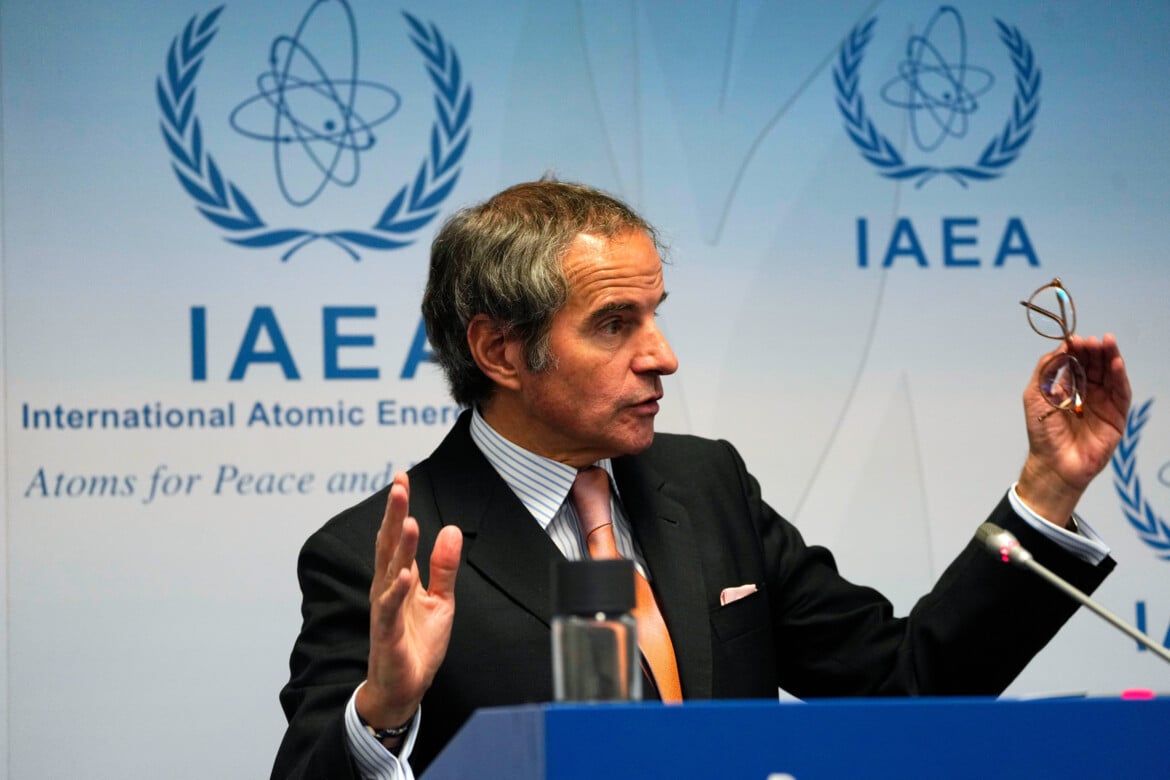Analysis
How an Atomic Energy Agency report helped give Israel political cover to bomb Iran
At best, global diplomacy now looks like it’s making it all up as it goes along. At worst, it looks marked by generalized duplicity.

On Italy’s flagship news show TG1, International Atomic Energy Agency director-general Rafael Mariano Grossi chose every word with the utmost care, because he wanted to be crystal-clear, at least this time.
“We need a return to diplomacy,” he said, pushing back at Tehran’s charge of bias over the June 12 resolution that condemned Iran’s nuclear program and supplied Israel with a pretext for missile strikes. “To say that an Agency report is a sign of alliance or co-conspiracy with other countries is absolutely absurd.”
He repeated the resolution’s exact wording, which never mentions making a nuclear bomb: “Iran has not provided credible answers to many technical questions we have asked.” As he previously told CNN, “We did not have any proof of a systematic effort to move into a nuclear weapon.”
The Argentine diplomat soon realized he had blundered. The June 12 text handed Israel undeniable political cover, and now Grossi is scrambling to do damage control, trying to convince the world that the report was never meant to short-circuit diplomacy. Indeed, the IAEA did not mention nuclear weapons. It faulted Tehran for failing to explain the presence of uranium at undeclared sites, violations of the Non-Proliferation Treaty signed by the Ayatollahs (but not signed by Israel, whose secret nuclear program is off limits to all inspection). The resolution also pointed out the anomaly that Iran has stockpiled, by the Agency’s count, more than 400 kilograms of uranium enriched to 60% – not enough for a warhead, but useless for civilian nuclear power.
Questions about Iran are perfectly legitimate, but the IAEA has waited for these answers from Tehran for six years. One didn’t need to be a strategic genius to see that, with such timing, the resolution would give Tel Aviv political legitimacy – while not legal under international law – for its long-postponed attack.
Yet it is implausible to think that the Israel-Iran conflict hinged on a few paragraphs or the words of a single diplomat. The IAEA is not an independent research center: it reports to the UN General Assembly and is steered by a 35-nation rotating board. The June 12 resolution was not Grossi’s misstep in particular. The text was tabled just a week earlier by the United States, France, the United Kingdom and Germany – thus, Washington, which was quietly negotiating with Tehran in Oman at the same time, and the European governments now clamoring for de-escalation.
“Obviously we have all been very concerned for some time about the nuclear program Iran is developing,” British prime minister Keir Starmer said on Thursday. “We completely recognize Israel’s right to self-defense, but the principle is that we need to de-escalate this … there’s a real risk of escalation that will impact the region, possibly beyond, akin to Gaza.”
These warnings come much too late – like Friday’s meeting in Geneva between Iran’s diplomatic representatives and the foreign ministers of France, the UK and Germany, with the latter trying to fix what they themselves set in motion. The meeting was still in doubt until Thursday evening. Then, confirmation arrived via the Financial Times that Washington had given its blessing to the trilateral European “E3” format, which again excludes any role for Italy. “Iran cannot obtain a nuclear weapon,” White House press secretary Karoline Leavitt said. “The President therefore expects Europe to convey that message directly to the Iranians.”
At best, global diplomacy now looks like it’s making it all up as it goes along. At worst, it looks marked by generalized duplicity. Tehran claims only peaceful nuclear aims while buying advanced centrifuges for enrichment. The U.S. negotiates with its representatives while readying air strikes on Iranian soil. Europe’s position is also ambiguous: it pleads for restraint even as it thanks Israel for doing the region’s “dirty work,” as German chancellor Friedrich Merz did.
In the end, Benjamin Netanyahu is the only consistent one. Once he announces bombardments, it’s hard to make him change course.
Originally published at https://ilmanifesto.it/aiea-il-cerino-acceso-e-il-tardivo-dietrofront on 2025-06-20
